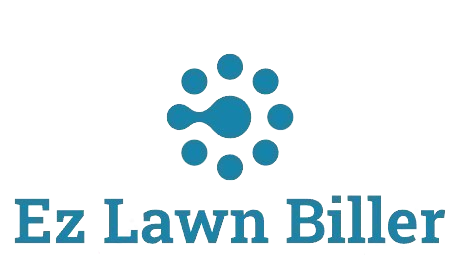Lawn care professionals face a myriad of regulations and best practices that ensure compliance within the industry. This article will explore essential strategies for staying compliant, enhancing your operations, and boosting customer satisfaction.
Stay Compliant: Best Practices for Lawn Care Pros
As the lawn care industry continues to grow, so does the importance of compliance with local, state, and federal regulations. From pesticide application to business licensing, lawn care professionals must navigate a complex landscape of rules designed to protect both the environment and their clients. In this blog post, we will delve into crucial compliance practices, industry regulations, and practical tips to help lawn care pros maintain standards and elevate their businesses.
Understanding compliance in lawn care is not just about avoiding penalties; it’s about building trust with your clients and ensuring the sustainability of your business practices. Compliance is essential for maintaining safety, protecting the environment, and maximizing operational efficiency. This article will cover key aspects such as pesticide regulations, equipment maintenance, employee training, and client communication practices, providing you with actionable insights to enhance your compliance strategy.
Pesticide Regulations: Know the Rules
Pesticide application is one of the most heavily regulated areas in lawn care. Each state has its own set of rules governing the use of pesticides, including licensing requirements and application methods. For lawn care professionals, understanding these regulations is critical.
For instance, many states require lawn care technicians to obtain a pesticide applicator’s license before applying any chemicals. This certification often involves passing an exam that covers safe handling practices, environmental impacts, and the specific types of pesticides used in the industry. By ensuring that you and your team are licensed, you not only comply with the law but also enhance the credibility of your services.
Moreover, it’s important to stay informed about the types of pesticides that are approved for use in your state and the application protocols. For example, some products may have restrictions on when and where they can be applied, particularly concerning water bodies or residential areas. Keeping updated with the latest regulations can prevent potential fines and enhance safety for both your team and clients.
Equipment Maintenance: Keep It Safe and Compliant
Regular maintenance of your equipment is not only a best practice for operational efficiency but also a compliance necessity. Well-maintained equipment reduces the risk of accidents and ensures that all machinery operates within safety standards. This includes regular inspections, cleaning, and servicing of mowers, trimmers, and any pesticide application equipment.
In addition to improving safety, proper equipment maintenance can have a significant impact on your compliance with environmental regulations. For example, leaks or malfunctions in pesticide application equipment can lead to spills, which are not only hazardous but may also violate local environmental regulations. Establishing a routine maintenance schedule and documenting all services performed can help protect your business from compliance issues.
Consider implementing a checklist for equipment maintenance that includes daily inspections before use, routine servicing, and a system for tracking repairs. Keeping your equipment in top condition demonstrates professionalism and a commitment to safety in your lawn care operations.
Employee Training: Invest in Your Team
Training your employees on compliance issues is crucial for maintaining industry standards and ensuring safe practices on the job. Employees should be well-versed in regulations related to pesticide use, equipment operation, and customer service protocols.
Regular training sessions not only keep your team informed about the latest regulations but also foster a culture of safety and professionalism. Providing comprehensive training on the safe handling of chemicals, for instance, emphasizes the importance of compliance and can significantly reduce the risk of accidents.
In addition, consider offering ongoing education opportunities, such as workshops or access to online courses. This investment in your team’s knowledge and skills not only enhances compliance but can also improve employee satisfaction and retention, as team members feel more competent and valued in their roles.
Client Communication: Transparency is Key
Effective communication with clients is a cornerstone of compliance in the lawn care industry. Clients should be informed about the services being provided, particularly when chemicals are involved. Transparency builds trust and helps manage client expectations, reducing the likelihood of misunderstandings or disputes.
One best practice is to provide clients with detailed information regarding the products you plan to use, including safety data sheets and any potential risks. This not only fulfills legal obligations but also empowers clients to make informed decisions about their lawn care.
Moreover, establishing clear procedures for communicating service schedules, billing, and any changes in services helps maintain a smooth client relationship. Incorporating software like [Lawn Biller Software](https://ezlawnbiller.com/) can streamline this communication, making it easier to keep your clients informed and satisfied.
Creating a Compliance Checklist
To ensure that your lawn care business remains compliant, consider developing a comprehensive compliance checklist that addresses each key area discussed. This checklist can serve as a valuable tool for daily operations, helping to ensure that all regulatory requirements are met consistently.
Your checklist should include items such as checking for current pesticide licenses, scheduling regular equipment maintenance, verifying employee training certifications, and confirming client communications. This organized approach will help you stay proactive in your compliance efforts and can be invaluable during audits or inspections.
In addition to regulatory compliance, a well-structured checklist can streamline operations, allowing you to focus more on delivering quality service to your clients. By integrating software like [Lawn Biller Software](https://ezlawnbiller.com/), you can further enhance your ability to manage compliance without sacrificing efficiency.
Environmental Responsibility: Going Green
In today’s market, environmental responsibility is more than just compliance; it’s a business imperative. As a lawn care professional, adopting eco-friendly practices can not only enhance your reputation but also help you stay ahead of regulatory changes related to environmental protection.
Consider implementing integrated pest management (IPM) strategies that emphasize non-chemical methods of pest control, such as biological control and habitat manipulation. Not only do these methods comply with increasingly stringent pesticide regulations, but they also appeal to environmentally conscious consumers.
Additionally, offering organic lawn care options can expand your client base and showcase your commitment to sustainability. By positioning your business as an environmentally responsible option, you can differentiate yourself in a crowded market and meet the growing demand for green services.
Staying Informed: Resources for Compliance
Staying compliant requires ongoing education, as regulations and best practices are continually evolving. Leverage professional organizations, industry publications, and online resources to stay updated on the latest developments in lawn care compliance.
Joining organizations such as the Professional Landcare Network (PLANET) or the National Association of Landscape Professionals (NALP) can provide valuable resources, including compliance guides, training opportunities, and networking with other professionals in the industry. This engagement can keep you informed about best practices and regulatory changes.
Furthermore, consider subscribing to newsletters and following relevant blogs that focus on lawn care regulations and compliance. This proactive approach will ensure that you are always aware of changes that may affect your business, allowing you to adapt quickly and maintain compliance.
Networking with Other Professionals
Building a network of fellow lawn care professionals can be invaluable for sharing compliance tips and best practices. Engaging with others in the industry can provide insights into successful compliance strategies, potential pitfalls, and the resources that have worked for others.
Participating in local trade shows, conferences, and workshops can also enhance your professional development and keep you informed about the latest trends and technologies in the lawn care industry. Networking not only fosters collaboration but can also lead to partnerships that enhance service offerings and compliance strategies.
In addition, consider forming or joining local groups focused on lawn care compliance. This collaborative approach can help to address common compliance challenges and share solutions that have proven effective in similar operational contexts.
Leveraging Technology for Compliance
Incorporating technology into your lawn care operations can significantly enhance your compliance efforts. Tools such as [Lawn Biller Software](https://ezlawnbiller.com/) streamline billing and client management, while also providing features that support compliance tracking and documentation.
Utilizing mobile applications for service tracking can help document pesticide applications, equipment maintenance, and employee training in real-time. This efficient documentation process not only aids in compliance but also provides a clear record that can be invaluable during audits.
Moreover, consider using software tools that help monitor regulatory changes in your area. This proactive approach can ensure that your business remains compliant with the latest laws and regulations, minimizing the risk of penalties and enhancing your operational efficiency.
Conclusion
Staying compliant in the lawn care industry is a multifaceted endeavor that requires dedication, education, and attention to detail. By understanding pesticide regulations, maintaining equipment, investing in employee training, and fostering open communication with clients, lawn care professionals can navigate the complex compliance landscape effectively.
As the industry continues to evolve, adopting environmentally responsible practices and leveraging technology will further enhance compliance and operational efficiency. By implementing these best practices, you not only protect your business but also contribute to a safer and more sustainable environment.
In conclusion, compliance is not merely a legal obligation; it is an opportunity to build trust with your clients and establish your lawn care business as a leader in professionalism. Take action today to enhance your compliance strategy, and consider tools like [Lawn Biller Software](https://ezlawnbiller.com/) to simplify your operations and focus on delivering exceptional lawn care services.




